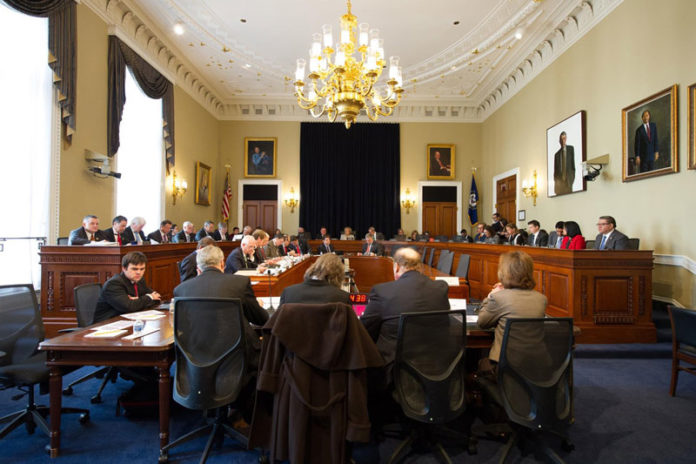The budget resolution of $1.1 trillion from the House Budget Committee has a questionable future as an internal conflict arose among the representative of the GOP over the $203 billion in mandatory spending cuts.
After an extensive session where the democrats were expected to propose 28 different amendments, the budget committee is set to finally pass the budget. The steps that follow are not concrete yet as the Republicans are still short of votes needed to pass the resolution on the House floor.
The chairwoman of the committee, Diane Black, says that she will make sure each and every member understands the value and significance of whatever they decide to add in the resolution before everyone reaches a general consensus.
The Freedom Caucus have managed to secure reductions worth $53 billion as a result of weeks of pushing higher mandatory spending cuts to offset discretionary spending in the proposed resolution. However they are asking for almost twice the previous amount coming mostly from Medicaid, welfare programs, nutrition assistance as well as education. Few of those savings would be the result of adding work requirements for Medicaid and the Welfare Support Programs.
According the vice chairman of the House Budget Committee, Todd Rokita, the economic growth has been said to be slower than anticipated while millions of citizens are choosing not to even look for a job.
Centrist Republicans say the mandatory cuts are too much to be pushed through as part of the reconciliation process. According to them, the proposed budget resolution is oblivious of the political realities that exist.
Democratic support in the Senate will be required to pass any spending package. Same goes for lifting the budget caps to appropriate significant increases for the defense budget.
As the legislative weeks come to an end of the fiscal year 2017, they say that instead of negotiating a deal at the eleventh hour, the Republicans should negotiate with the Democrats otherwise it will yield different spending levels.
“We are writing the appropriations bill with numbers that are not real,” said Tuesday Group co-Chairman Charlie Dent (R-Pa.), citing the budget’s $511 billion allocation for nondefense discretionary spending and $621.5 billion allocation for defense.
The Co-Chairman of the Tuesday Group, Charlie Dent, says that the appropriation bill is being drafted by them is using numbers that are far from reality while citing the $621 billion budget allocation for the defense and $511 billion for non-defense discretionary spending.
While referring to a republican plan of speeding up the process by combining all 12 appropriation bills into a single bill called the ‘omnibus’ he said, “Everyone knows that there will be a bipartisan, bicameral budget agreement at some point, and that 511 number will come up, the 621 number on defense will come down, those will be the real numbers, and the real omnibus will be later this year.”
Some members of the GOP are still concerned that they need more time to read the complex bills before the vote while others want to proceed with the plan as is.
Another complication for the budget is the fact that the efforts to repeal Obamacare, also known as the Affordable Care Act, also collapsed in the Senate.
The Republicans will be patient and let Senate do their job with the proposal as they have no plans to alter the healthcare assumptions of the budget plan. Whereas, the groups leaning to the left and the Democrats stood up against the budget plan, considering them to be cruel cuts,
“House Republicans have devised a toxic budget whose sole purpose is to hand tax breaks to billionaires on the backs of seniors and hard-working Americans,” said House Minority Leader Nancy Pelosi (D-Ca.).
Budget Committee ranking member John Yarmuth (D-Ky.) said that Black had not invited him for any discussions on the budget and predicted that the resolution would fail on the House floor.
According to John Yarmuth (D-KY.), ranking member on the Budget Committee, Black did not invite him or any discussions on the budget. He further expects the resolution to fail on the House floor.
“The problem with the whole exercise is that it is designed to pave the way for a huge tax cut,” he said.






























